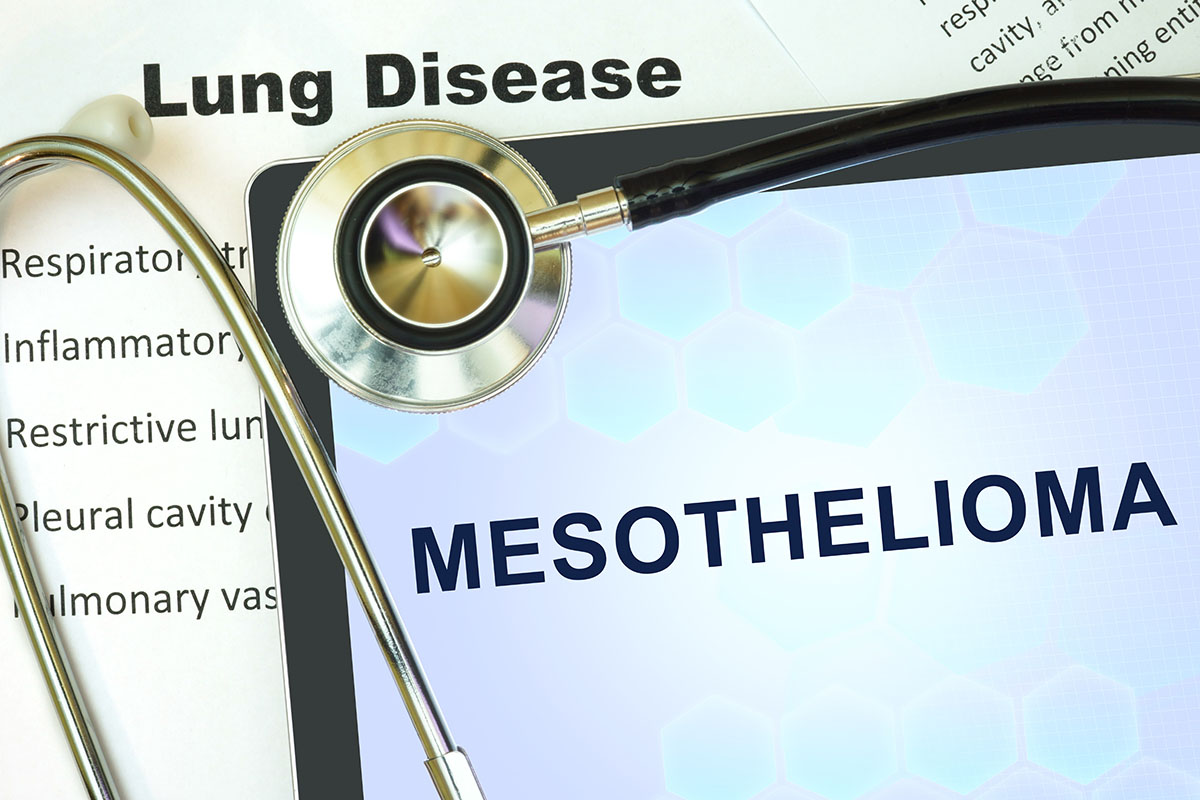What is Mesothelioma?
Mesothelioma is a rare and aggressive form of cancer that primarily affects the lining of the lungs, abdomen, or heart. This disease is often linked to asbestos exposure, which can occur in various settings, including workplaces and homes. The cancer develops slowly, sometimes taking decades to show symptoms.
Types of Mesothelioma
There are four main types of mesothelioma, each affecting different areas of the body:
- Pleural Mesothelioma: This is the most common type and affects the lining of the lungs.
- Peritoneal Mesothelioma: This type impacts the lining of the abdomen.
- Pericardial Mesothelioma: This rare type affects the lining around the heart.
- Testicular Mesothelioma: The rarest form, affecting the lining around the testicles.
Causes and Risk Factors
The primary cause of mesothelioma is exposure to asbestos, a group of minerals used in construction, manufacturing, and other industries. Risk factors include:
- Occupational Exposure: Jobs in construction, shipbuilding, and manufacturing can increase the risk.
- Environmental Exposure: Living near asbestos mines or factories can also be a risk.
- Secondary Exposure: Family members of workers exposed to asbestos can be at risk due to fibers brought home on clothing.
- Genetic Factors: Some people may be more susceptible due to their genetic makeup.
Diagnostic Procedures for Mesothelioma
Initial Symptoms and Warning Signs
Mesothelioma often starts with subtle symptoms that can be easily overlooked. Common early signs include shortness of breath, chest pain, and a persistent cough. These symptoms are often mistaken for less serious conditions, which can delay diagnosis. It’s important to see a doctor if these symptoms persist, especially if there’s a history of asbestos exposure.
Imaging Tests and Biopsies
To diagnose mesothelioma, doctors use a variety of imaging tests and biopsies. Imaging tests like X-rays, CT scans, and MRIs help doctors see abnormalities in the chest or abdomen. If these tests suggest mesothelioma, a biopsy is usually the next step. During a biopsy, a small tissue sample is taken from the affected area and examined under a microscope to confirm the presence of cancer cells.
Staging Systems
Once mesothelioma is diagnosed, doctors use staging systems to determine how far the disease has progressed. The most common staging system is the TNM system, which stands for Tumor, Node, and Metastasis. This system helps doctors describe the size of the tumor, whether it has spread to nearby lymph nodes, and whether it has spread to other parts of the body. Staging is crucial for planning the best treatment approach and predicting the patient’s prognosis.
Stages of Mesothelioma
Stage 1: Early Detection
In the first stage, mesothelioma is found only in one area. It hasn’t spread to other parts of the body. This stage offers the best chance for treatment. Doctors often use surgery to remove the tumor. Other treatments like chemotherapy or radiation might also be used to kill any remaining cancer cells.
Stage 2: Localized Spread
By the second stage, the cancer has started to spread to nearby tissues. It might affect the lining of the lungs or abdomen. Treatment options are similar to Stage 1 but may be more aggressive. Surgery is still an option, but doctors might also recommend stronger doses of chemotherapy or radiation.
Stage 3: Advanced Progression
In Stage 3, mesothelioma has spread more widely. It may have reached lymph nodes or other organs. Treatment becomes more challenging. Doctors focus on slowing the cancer’s growth and managing symptoms. Options include chemotherapy, radiation, and sometimes surgery. Palliative care is also important to improve the patient’s quality of life.
Treatment Options for Mesothelioma
Surgery
Surgery is often one of the first treatment options for mesothelioma. It aims to remove as much of the cancer as possible. There are different types of surgeries, such as pleurectomy/decortication (P/D) and extrapleural pneumonectomy (EPP). The choice of surgery depends on the stage of the disease and the patient’s overall health.
Chemotherapy
Chemotherapy uses drugs to kill cancer cells. It can be given before surgery to shrink tumors or after surgery to kill any remaining cancer cells. Sometimes, chemotherapy is used as the main treatment if surgery isn’t an option. Common drugs include pemetrexed and cisplatin.
Radiation Therapy
Radiation therapy uses high-energy rays to target and kill cancer cells. It can be used alone or in combination with surgery and chemotherapy. Radiation helps to reduce symptoms and control the spread of the disease. It is often used to relieve pain and improve the quality of life for patients.
Living with Mesothelioma
Managing Symptoms
Living with mesothelioma can be challenging, but there are ways to manage symptoms and improve quality of life. Patients often experience pain, shortness of breath, and fatigue. To help with these symptoms, doctors may prescribe medications, recommend physical therapy, or suggest lifestyle changes. It’s important to follow the treatment plan and communicate with healthcare providers about any new or worsening symptoms.
Support Systems and Resources
Having a strong support system is crucial for those living with mesothelioma. Family, friends, and support groups can provide emotional and practical help. There are also many resources available, such as counseling services, financial aid programs, and patient advocacy groups. These resources can assist with navigating the healthcare system, managing expenses, and finding emotional support.
Quality of Life Considerations
Quality of life is an important aspect of living with mesothelioma. Patients should focus on activities that bring joy and fulfillment. This might include hobbies, spending time with loved ones, or participating in community events. It’s also important to address mental health needs, as living with a chronic illness can be emotionally taxing. Seeking help from mental health professionals can be beneficial in managing stress, anxiety, and depression.
Research and Emerging Therapies
Clinical Trials
Clinical trials are essential for discovering new treatments for mesothelioma. These studies test the safety and effectiveness of new drugs or therapies. Patients who join clinical trials can access cutting-edge treatments that are not yet widely available. Participation in these trials also helps researchers gather valuable data to improve future care.
Innovative Treatments
Innovative treatments for mesothelioma are constantly being developed. Some of these include immunotherapy, which uses the body’s immune system to fight cancer, and gene therapy, which aims to correct genetic defects that cause the disease. These new approaches offer hope for better outcomes and fewer side effects compared to traditional treatments.
Future Directions in Mesothelioma Care
The future of mesothelioma care looks promising with ongoing research and technological advancements. Scientists are exploring personalized medicine, which tailors treatment to an individual’s genetic makeup, and new drug combinations that may be more effective. Continuous research efforts are crucial for finding a cure and improving the quality of life for those affected by mesothelioma.










